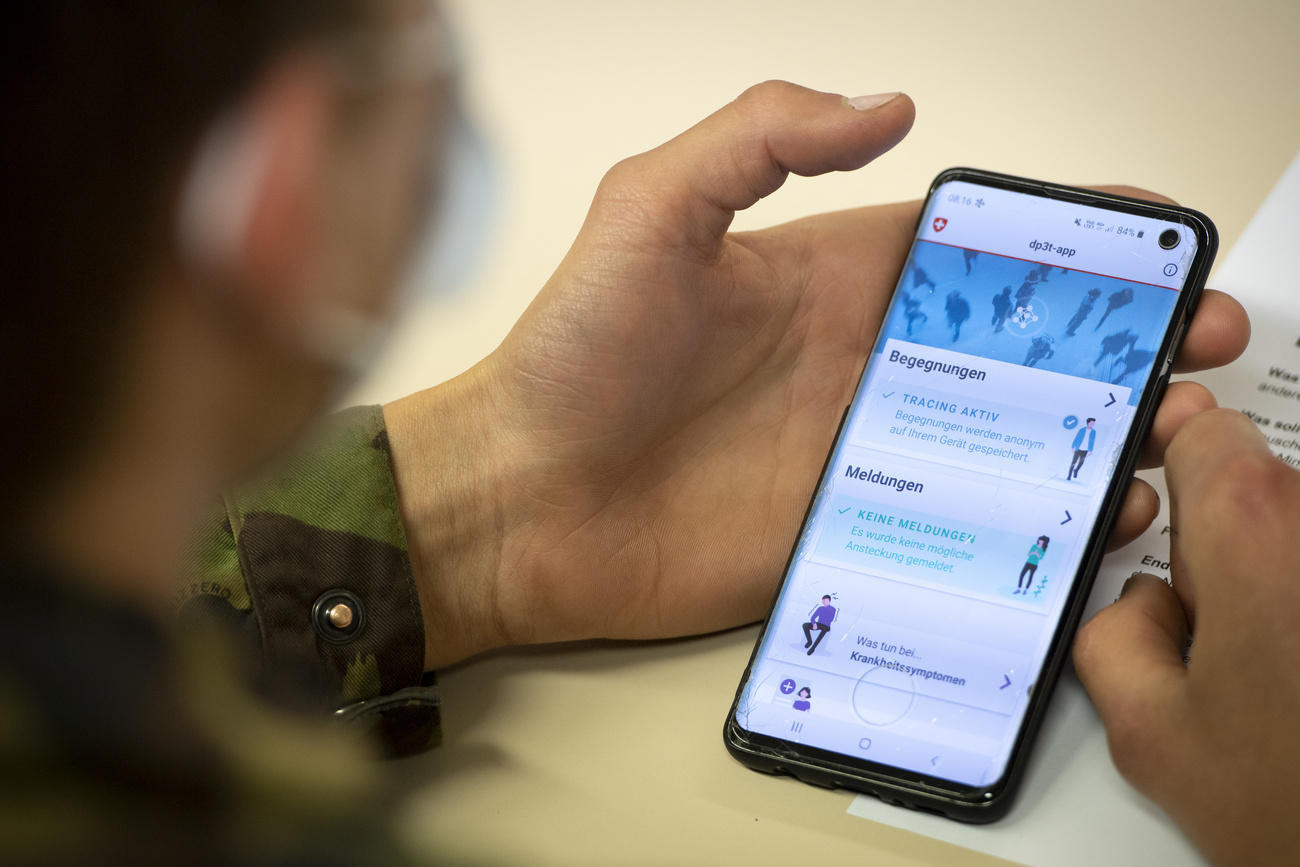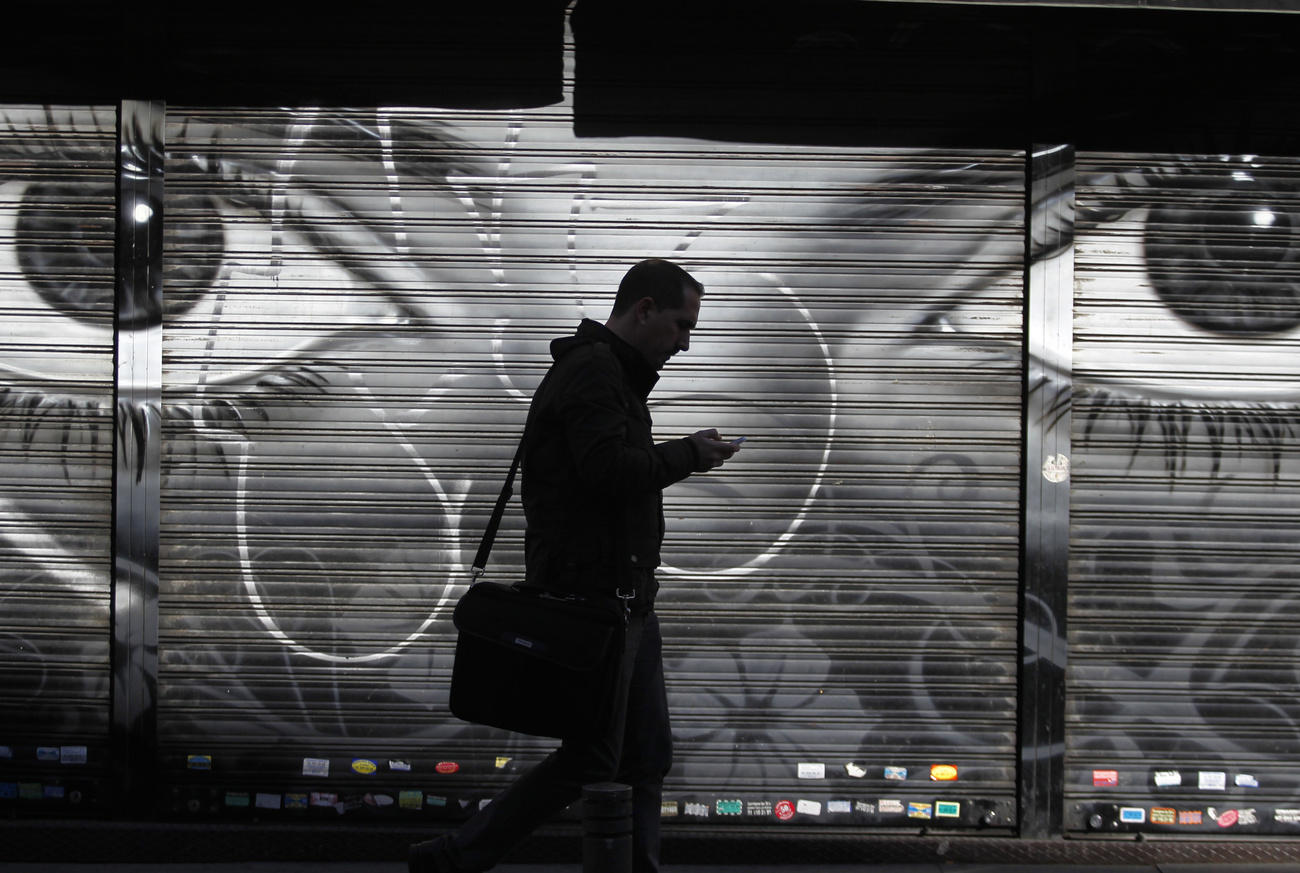
Poll: 70% of residents back ‘SwissCovid’ tracing app

A Swiss smartphone app that uses Apple-Google technology to help trace coronavirus infections has widespread support among the population, a new survey shows.
Around 70% of Swiss residents welcome the introduction of the decentralised contact tracing application DP-3T, according to a poll published on Monday by the research consultancy SotomoExternal link.
In all, 59% of the 2,819 people surveyed said they would install the “SwissCovid” app in the coming weeks. There were no big differences between age groups.
From Monday, employees of the Swiss army, of several hospitals and cantonal administrations, and of federal technology institutes EPFL and ETH Zurich will be able to download and use the “SwissCovid” app on a voluntary basis, as part of a large-scale pilot phase in Switzerland.
The authorities hope that at least 60% of the general public will later adopt the app voluntarily alongside more traditional human tracing efforts.

More
Coronavirus contact tracing app: friend or foe?
Concerns
The Sotomo survey nonetheless revealed a number of challenges ahead.
Data protection concerns were the main arguments for not downloading the app, followed by the need to permanently activate Bluetooth on your phone or worries about battery life.
“But the problem is often not data protection in a strict technical sense but rather a general apprehension about freedoms being restricted,” the poll authors commented.
They also found that 54% of respondents were against a mandatory Covid tracing app. The idea that some employers, businesses or services might decide to impose the app raises much opposition, the poll said.
It added that while most people had heard of the contact tracing app, many were unfamiliar with its specific characteristics.
The DP-3T system is decentralised with contacts and data stored on devices rather than on an external server. The app employs Bluetooth technology to allow smartphones to communicate with each another anonymously.
If a person tests positive for coronavirus, all the people with whom that person was in contact in previous days – within two metres of proximity for more than 15 minutes – are alerted via the app to isolate themselves and get tested.
The Apple and Google tracing technology bars authorities using it to collect GPS location data or require users to enter personal data.
The Swiss authorities say the “SwissCovid” app is the first in the world to use the OS updates from Apple and Google. Parliament will debate the legal bases for the app in June and if approved, it should be made available to the general public by mid-June.

More
Coronavirus: the situation in Switzerland

In compliance with the JTI standards
More: SWI swissinfo.ch certified by the Journalism Trust Initiative




























You can find an overview of ongoing debates with our journalists here . Please join us!
If you want to start a conversation about a topic raised in this article or want to report factual errors, email us at english@swissinfo.ch.